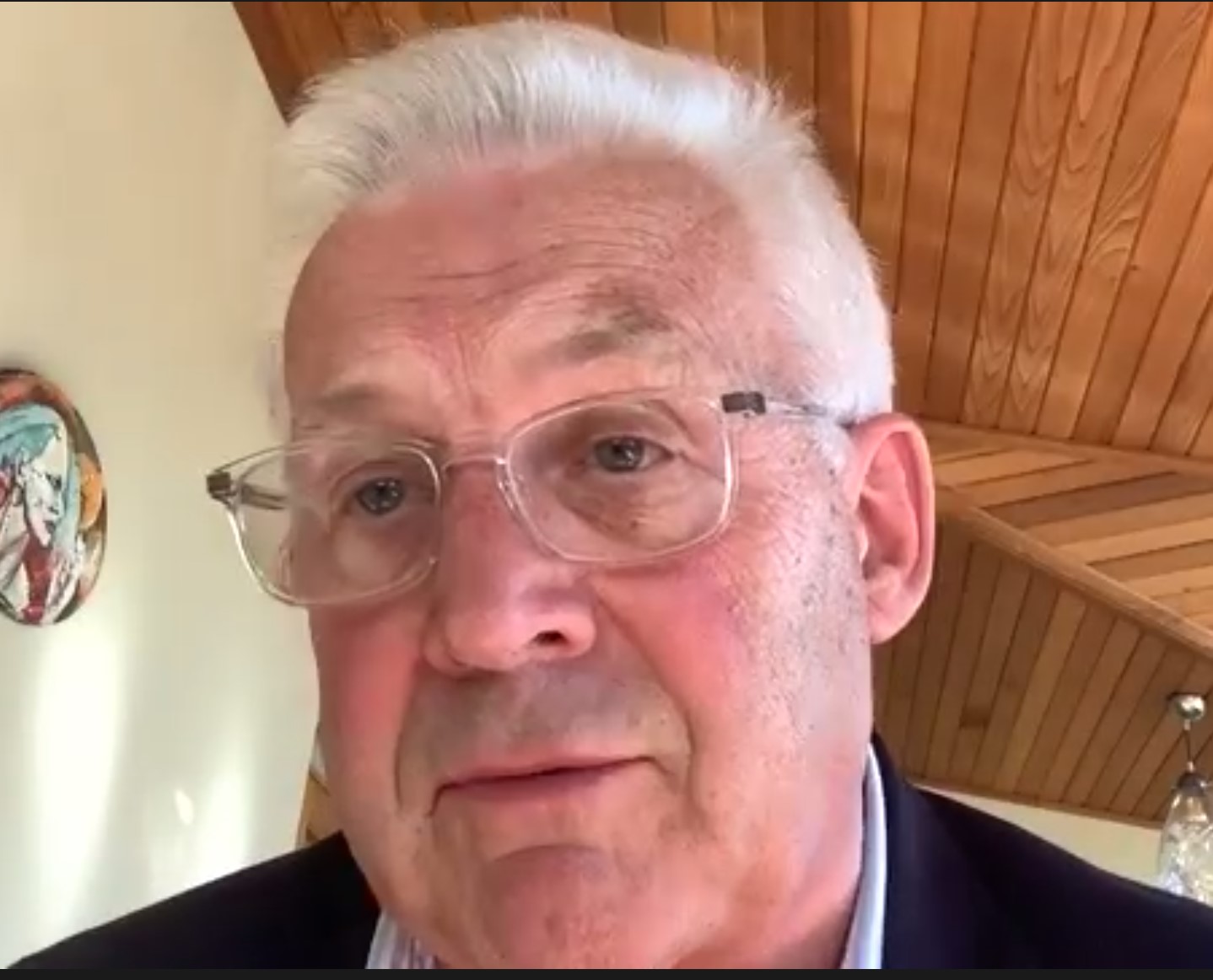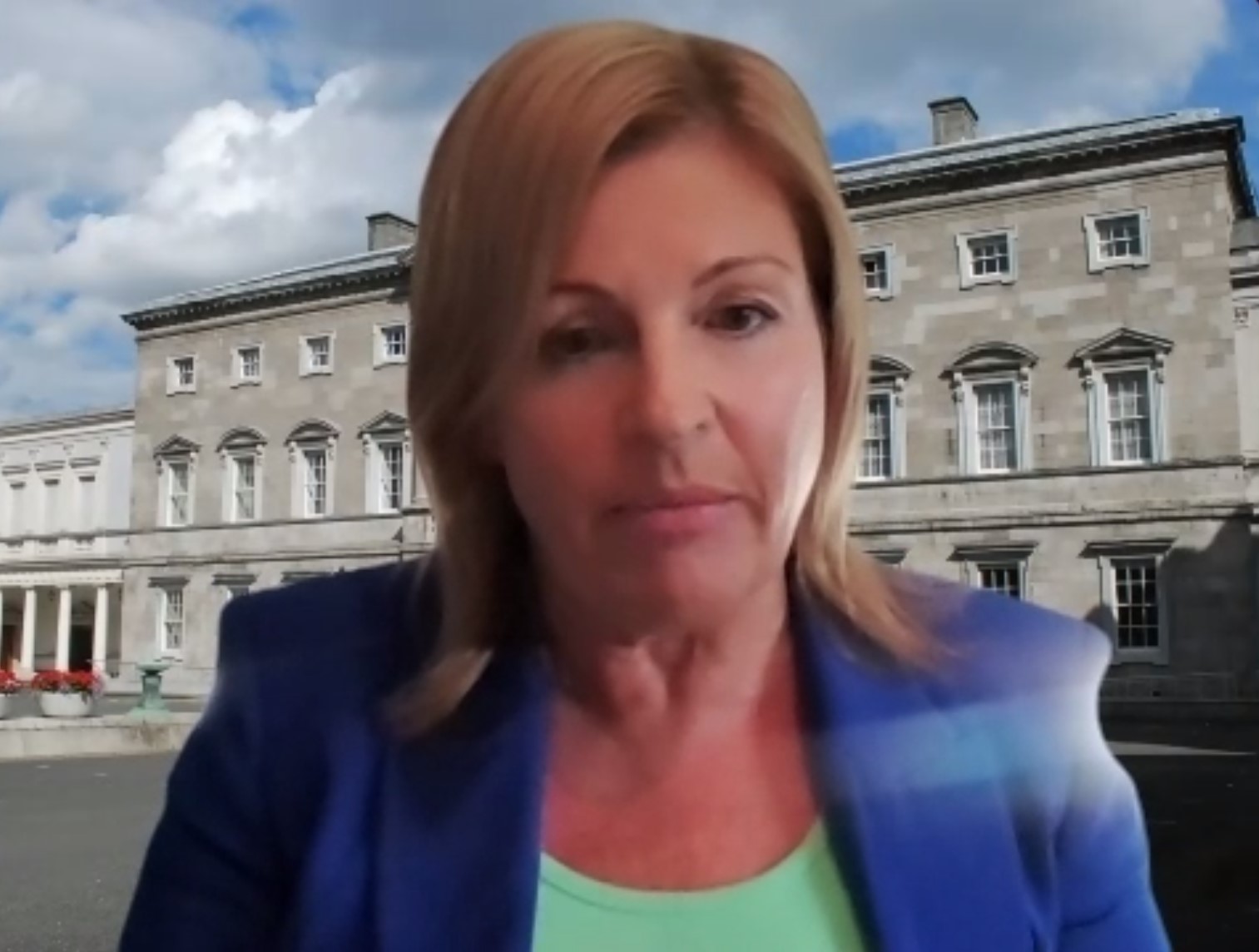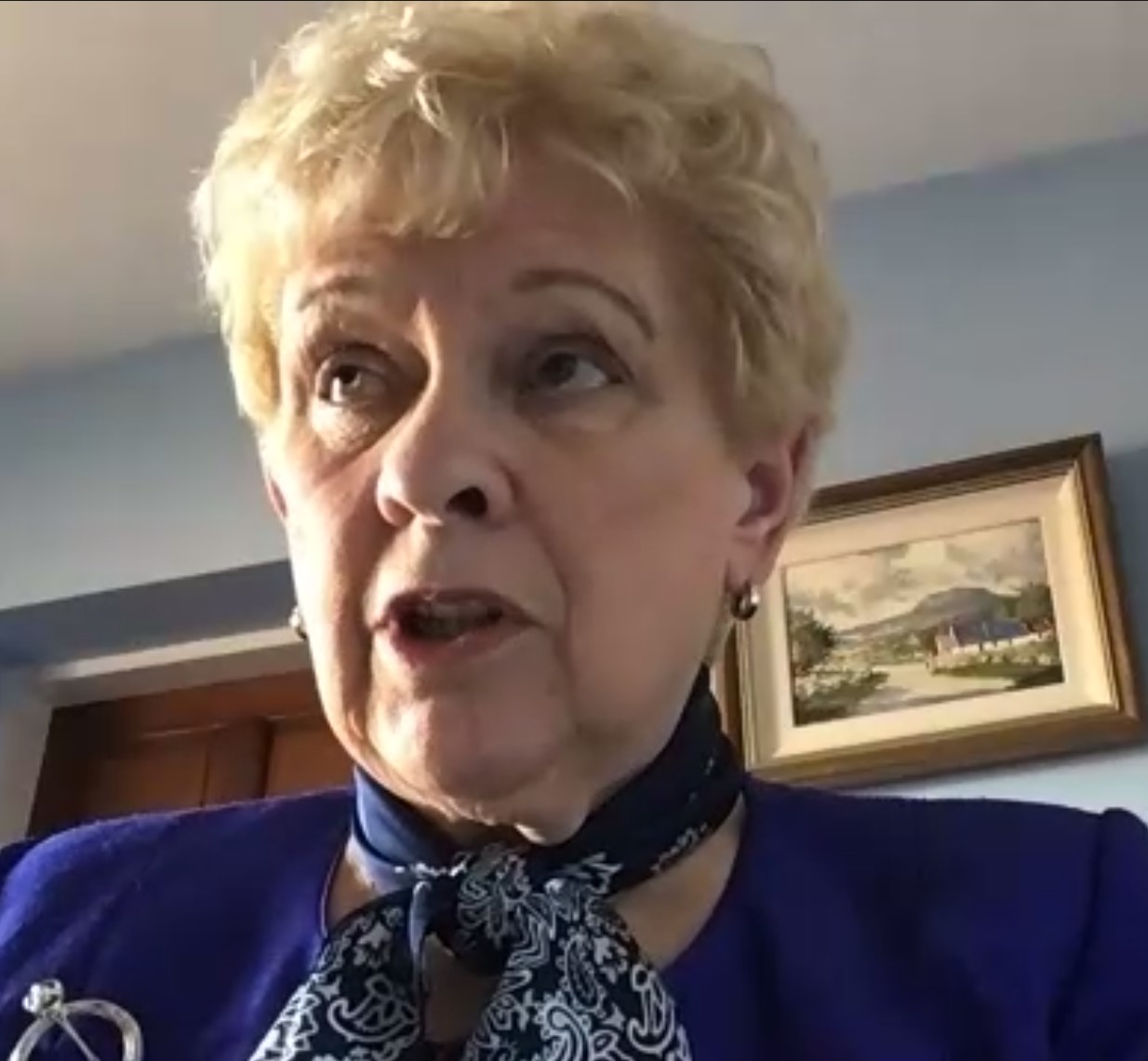Members of a key Irish parliamentary Committee have urged the Irish government to charge Britain in the European Court of Human Rights, if Britain enacts its Northern Ireland Troubles (Legacy and Reconciliation) Bill shutting down hopes of legacy justice. Fergus O’Dowd TD, on behalf the Irish Committee for the Implementation of the Good Friday Agreement (GFA),has made the formal request to the Irish Attorney General, while fellow committee member, Rose Conway-Walsh TD, raised the issue with Irish Taoiseach Micheal Martin during the recent British-Irish Association conference. These developments were announced during an Ancient Order of Hibernians webinar broadcast last Saturday, which was also highlighted by a biting analysis of the amnesty bill from House of Lords member Nuala O’Loan, and moving accounts from two victims’ family representatives.

GFA Committee
Fergus O’Dowd, a Fine Gael party member of the Irish parliament or Dail from County Louth, chairs the Implementation of the Good Friday Agreement Committee (GFA Committee) which includes Irish Dail and Seanad members, plus British Parliament MPs elected from the six counties. The GFA Committee deals with all issues arising from Good Friday Agreement, and is accordingly deeply concerned about legacy justice.
In Washington DC last June, AOH members, accompanied by Mark Thompson of Relatives for Justice, met GFA Committee members, including Fergus O’Dowd TD, and Rose Conway-Walsh TD. During these meetings AOH President Danny O’Connell asked the GFA Committee to recommend that the Irish government investigate taking Britain to the European Court of Human Rights over the planned amnesty bill. An Irish government case at the European Court, would spare victims’ relatives years of legal delays spent exhausting local remedies in Crown and Appellate courts, before the European Court could consider the case.
O’Dowd, with approval from the full GFA Committee has made a formal written request calling upon Attorney General Paul Gallagher, to examine the British amnesty bill ‘with a view to taking an interstate case should you determine that the legislation contravenes the UK’s obligations under Articles 2 and 3 of the European Convention on Human Rights’.
JCIGFA – Letter to AG re UK Legacy Legislation

Rose Conway-Walsh, a Sinn Fein party Dail member from county Mayo, and another influential member of the GFA Committee, recently attended a British-Irish Association conference. She asked Irish Taoiseach Micheal Martin, ‘is the Irish government looking at a legal path to take Britain to the European Court of Human Rights?’ She feels ‘it is not okay for Britain to make agreements then break them at will’.
She was told that the Irish government wants to give the new British Prime Minister, Liz Truss, an opportunity to withdraw the amnesty bill and resume genuine negotiations with Ireland on legacy, before making a final decision to indict Britain in the European Court.

Lord’s Perspective
Nuala O’Loan, a former Police Ombudsman, now a Baroness sitting in the British House of Lord is also member of the Independent Steering Group for Operation Kenova, investigating killings by British agent Freddie Scappaticci, who had infiltrated the Irish Republican Army. She said that while her role in the House of Lords would be to propose amendments to fix the amnesty bill, but ‘this bill is broken and cannot be fixed’.
‘This bill provides there will be inquests, no prosecutions and no civil actions and without those three things, victims will not have their civil rights and legal rights’.
Baroness O’Loan said she had had held numerous meetings with British officials who say they are open to amendments, but has seen no indications from new Prime Minister Liz Truss or her appointed secretary Chris Heaton-Harris that there will be any change in British policy on legacy despite the opposition of all Irish political parties, the Council of Europe, United Nations and Human Rights Commissioner.
Pat Finucan Link
Victims’ representatives, Sean Slane and Elizabeth Hughes, each described the killing of their loved ones, and said their families would be devastated if British laws took away their chances for justice. Sean Slane at age 9, saw the murder of his father Gerard Slane, in September 1988. Loyalist gunmen smashed into their Belfast home with a sledgehammer, shooting his father, who tried to hold back the killers. Bullets had also been sprayed into the Sean’s bed. The Royal Ulster Constabulary called the murder a random sectarian attack by unidentified loyalists.
However, years later the de Silva review into the murder of Civil Rights lawyer Pat Finucane, revealed that British agent Brian Nelson, working for the British Army’s Force Research Unit (FRU), played a leading role in targeting Gerard Slane, providing his photograph, address and other information to the killer gang. Despite advance word from Nelson, the RUC made no attempt to warn the victim, nor arrest the killers, leaving them free to carry out the Finucane murder 5 months later. The Attorney General ordered a new Inquest, but that inquest is now threatened by the new Amnesty law.
Bill of Shame
Elizabeth Hughes’ uncle Gavin McShane, began life as a ‘miracle baby’ miraculously surviving a bombing attack by the notorious Glenanne Gang, which severely wounded his pregnant mother, only to be shot dead by another loyalist murder gang seventeen years later. Both John Weir, and Billy McCaughey who planted the bomb, were serving members of the RUC. The gang headed by British agent, Robin Jackson, is believed guilty of carrying out 120 murders, including the Dublin-Monaghan Bombings and Miami Showband Massacre.
Seventeen years later, Gavin McShane and another college student Shane McArdle were shot dead by another British agent Alan Oliver. The killer was unmasked as he walked across the road and shot the innocent schoolboys. Alan Oliver carried out numerous killings, but never arrested because he is a protected British agent. Gavin McShane’s family filed a civil suit against the RUC to get justice, but this civil suit could be voided by an amnesty bill which Ms. Hughes described as a ‘bill of shame.’
Mark Thompson, of Relatives for Justice spoke of the ‘heartbreak, cutting across generations, felt by thousands of victims RfJ represents, who have spent decades seeking truth about the murder of their loved ones, and now see the British government taking away all of their rights to justice enshrined under the European Convention of Human Rights and Good Friday Agreement.’
The Ancient Order of Hibernians National Freedom for All Ireland Chairman Martin Galvin added:
“The Northern Ireland Troubles (Legacy and Reconciliation) Bill would mean heartbreak and injustice for the families of hundreds of victims like the Slane and McShane families, who have spent decades fighting for truth. The injustice cuts across generations and is deeply felt by those like Elizabeth Hughes who was not even born when her uncle Gavin McShane was murdered.”
“During the summer we saw key Congressional opposition including a House Foreign Affairs Committee Briefing chaired by Congressman Keating, and a letter co-signed by more than 30 Members of Congress to Nuala O’Loan and other key members of the British House of Lords.”
“Every speaker on this panel said that American opposition to this legacy whitewash is crucial, and appealed to the AOH and Irish Americans across the country. We must not let them down.”